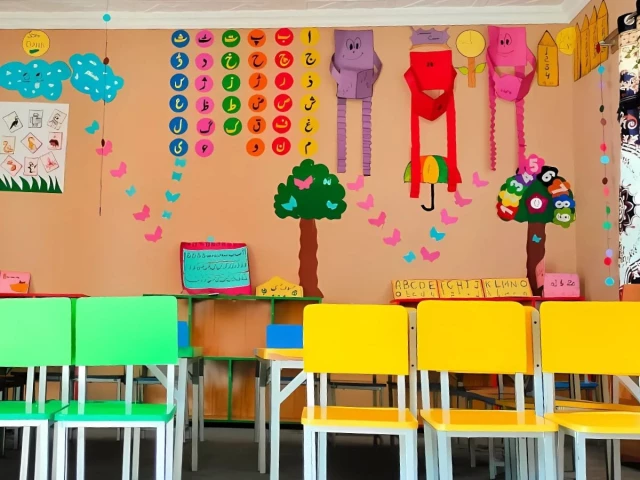In Pakistan, a large proportion of children, even in early primary grades, struggle to meet basic learning benchmarks. For instance, as per the ASER Report 2022 about half of grade 5 students are unable to read Grade 2-level text in English which is a clear indication that children are not acquiring basic foundational literacy. The challenges of numeracy levels are even worse.
These statistics showcase that schools are failing to deliver the required target of improved learning levels. Addressing these gaps is crucial as the basic foundational literacy and numeracy would ensure whether a child is prepared for acquiring future learning in advanced grades to break the cycle of learning poverty.
Foundational learning encompasses the core skills that children need to thrive academically and in life —primarily literacy and numeracy. These are the building blocks that enable learners to progress in all areas of their education.
In Pakistan, however, significant challenges remain in ensuring all children acquire these essential skills.
To tackle the challenges of foundational learning, it is crucial to invest in the professional development of teachers. Enhancing teachers’ pedagogical skills, content knowledge, and motivation is a cost-effective way to improve learning outcomes.
Teacher training programs, both pre-service and in-service, should embed foundational literacy and numeracy skills into their curricula. Programs should focus not only on theory but also on practical, classroom-ready strategies for literacy and numeracy instruction. Moreover, they should equip teachers with skills to conduct effective formative and summative assessments focused on these foundational skills.
Providing teachers with structured pedagogy packages has proven to be an efficient way to improve teaching quality.
These packages can include detailed lesson plans, teaching guides, context-appropriate materials, and innovative resources to complement standard textbooks. Additionally, continuous professional development through mentoring, coaching, and skills-based training is vital to ensuring teachers are equipped to effectively support students’ learning.
A significant portion of Pakistan's primary schools, particularly in rural areas, operate in multigrade classrooms. In the short term, these settings should be officially acknowledged and supported through specialized training for teachers.
Over time, however, a clearer policy should be developed to ensure adequate teacher recruitment, with the goal of reducing reliance on multigrade classrooms. Ideally, every school should have enough teachers for each grade level, but until that point, multigrade training should be integrated into teacher education at all stages of professional development.
Career progression within the teaching profession is often limited, particularly in government schools. This can lead to a shortage of qualified primary school teachers.
Reforming the salary and promotion systems to better incentivize primary school educators will help attract and retain talent. Linking salaries to improved foundational learning outcomes and offering bonuses for teaching in underserved areas can serve as motivators. This would ensure that teachers are both motivated and equipped to help students succeed.
The current curriculum in many cases demands more than students can handle, and many children struggle to keep up. For instance, only 54% of Grade 5 students can read Grade 2-level English sentences.
As part of a national strategy, each province should prioritize essential foundational skills from the National Curriculum. By reducing the number of student learning outcomes (SLOs) and focusing on the most critical skills, teachers will have the time needed to build strong foundations in literacy and numeracy. Remediation programs should also be designed to help struggling students catch up at the end of each academic year.
Sustained improvement in foundational learning requires strong political commitment, efficient funding, and a focus on high-quality teaching in students’ primary languages.
All the provinces have approved Foundational Learning Policy in 2024, is an important step forward, but it must be supported with appropriate materials, monitoring, and funding. Likewise, provincial policies should be aligned with this vision and adequately financed for effective implementation. A key step is dedicating more time within the school day for foundational literacy and numeracy, as current time allocations with additional time allocated for mathematics.
Pakistan spends less than 2% of its GDP on education, almost entirely consumed by salaries, insufficient portion left for the development of teaching and learning programmes.
A greater portion of the budget should be dedicated to primary education services not schools and dedicated budget lines for early childhood care and education (ECCE) and Foundational learning skills, ensuring that funds are used efficiently to improve foundational learning outcomes.
To gauge progress and make necessary adjustments, foundational learning assessments should be integrated into the educational system on a quarterly basis. Results should be reviewed centrally with actions taken to address areas of concern. Regular assessments will allow for continuous improvement and help identify students who need extra support.
The routines recommended to be established under foundational learning policies should be strictly implemented, with regular quarterly reviews led by not other than respective provincial Chief Ministers.
Accountability mechanisms should be built into the system, tying rewards and incentives to student learning outcomes. Public dissemination of results will generate a system wide debate, transparency of assessment results is key to building ownership and community engagement in the education system.
National campaigns such as "Read Punjab," "Read Sindh," or "Read Balochistan" could galvanize public support and encourage greater involvement from all stakeholders.
As we move forward, strong leadership and a collective commitment to improving educational outcomes for every child will be crucial. Only then can we ensure that every child in Pakistan acquires the foundational skills necessary for lifelong success.



COMMENTS (1)
Comments are moderated and generally will be posted if they are on-topic and not abusive.
For more information, please see our Comments FAQ